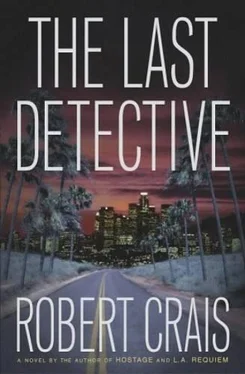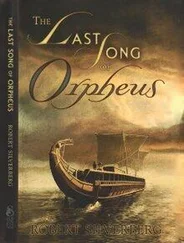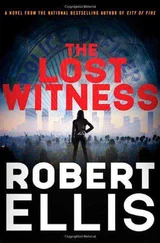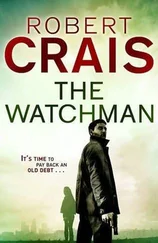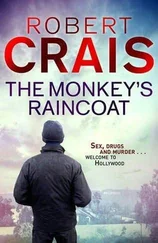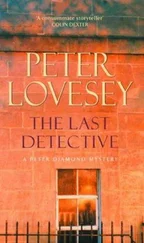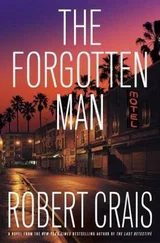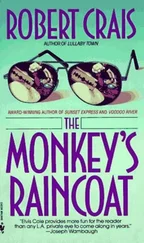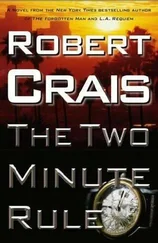Pike said, "Bears."
Resnick and I both glanced at him, but Pike was staring at the address. Resnick gripped my hand and held it. He looked into my eyes as if he was searching for something.
"Do you believe in God, Mr. Cole?"
"When I'm scared."
"I pray every night. I pray because I sent Mike Fallon to Sierra Leone, so I've always felt that part of his sin must be mine. I hope you find him. I hope the little boy is safe."
I saw the desperate darkness in Resnick's face, and recognized it as my own. A moth probably saw the same thing when it looked into a flame. I should not have asked, but I could not help myself.
I said, "What happened over there? What did Fallon do?"
Resnick stared at me for the longest time, then confessed.
Sierra Leone
Africa
1995
The Rock Garden
Ahbeba Danku heard the gunfire that morning only moments before the screaming boy fled down the road from the mine to her village. Ahbeba was a pretty girl, twelve years old this past summer, with long feet and hands, and the graceful neck of a princess. Ahbeba's mother claimed that Ahbeba was, in fact, a royal princess of the Mende tribe, and prayed every night for a prince to take her eldest daughter as his bride. The family could claim as many as six goats for their dowry, her mother predicted, and would be so rich that they could escape the endless war that the rebels of the Revolutionary United Front waged against the government for control of the diamond mines.
Ahbeba thought her mother crazy from smoking too much of the majijo plant. It was far more likely that Ahbeba would marry one of the young South African mercenaries who protected the mine and village from the rebels. They were strong handsome boys with guns and cigarettes who grinned brazenly at the girls who, in turn, flirted with the young men shamelessly.
Ahbeba spent most days with her mother, sisters, and the other village women tending a rock-strewn subsistence farm near the Pampana River. The women cared for a small goat herd and grew sweet potatoes and a hard pea known as a kaiya while their men (including Ahbeba's father) mined the slopes of the gravel pit for diamonds. As diggers and washers, the men were paid eighty cents per day plus two bowls of rice flavored with pepper and mint and a small commission on any diamond they found. It was hard, dirty work, shoveling gravel out of the steep slopes by hand, then pumping it into small washing plants where it was sorted by size, sluiced for gold, and picked through for diamonds. The men worked in shorts or underwear for twelve hours a day with only the dust that caked their skin as protection from the sun and the South Africans to protect them from the rebels. Princes were in short supply. Even more rare than diamonds.
That morning, Ahbeba Danku had been left to grind kaiya into meal while her sisters tended the crops. Ahbeba didn't mind; working in the village gave her plenty of time to gossip with her best friend, Ramal Momoh (who was two years older and had breasts the size of water bladders), and flirt with the guards. Both girls were blue with pea meal as they snuck glances at the guard who stood at the edge of the village. The young South African, who was tall and slender and as pretty as a woman, winked at them and beckoned them to join him. Ahbeba and Ramal giggled. Each was daring the other to do it, saying you, no, you, when a string of faraway pops crackled down the hill.
Poppoppop … pop… pop… poppoppop.
The guard jerked toward the sound like a street puppet in the Freetown bazaar. Ramal jumped up so quickly that the grinding stone tipped over.
"They're shooting at the mine."
Ahbeba had heard the guards shoot rats before, but it was nothing like this. Older women stepped from their huts and younger children paused in their play. The young South African called across the village to another guard, then unslung his rifle. His eyes were bright with fear.
Bursts of automatic-weapon fire layered over each other in a furious overlapping rage that ended as quickly as it began. Then the valley was silent.
"Why were the guards shooting? What is happening?"
"That wasn't the guards. Listen! Do you hear?"
A boy's scream reached the village, and then the thin figure of a child raced between the huts. Ahbeba recognized eight-year-old Julius Saibu Bio, who lived at the northern edge of their village.
"That's Julius!"
The boy pulled to a halt, sobbing, flapping his hands as if he was shaking off something hot.
"The rebels are killing the guards! They killed my father!"
The South African guard ran several steps toward Julius, then turned back toward the trees just as a white man with hair the color of flames stepped from the leaves and shot the South African twice in the face.
The village exploded in chaos. Women scooped children and infants into their arms and ran to the bush. Children burst into tears. Ramal ran.
"Ramal! What's happening? What do we do?"
"Run! Run NOW!'"
Two more South African guards burst from between the huts. The flame-haired man dropped to a knee and fired again – bapbap, bapbap – so fast that the shots sounded as one. Both South Africans fell.
Ramal disappeared into the jungle.
Ahbeba started for her family's hut, then ran back for Julius. She took him by the arm.
"Come with me, Julius! We have to hide!"
A flatbed truck crowded with men roared into the village, horn blowing. Men jumped off the truck in twos and threes as it raced between the huts. The flame-haired man shouted orders at them in Krio, the English-based Creole that was spoken by almost everyone in Sierra Leone.
The rebels fired into the air and beat the running women and children with the butts of their rifles. Ahbeba picked up Julius to run, but more rebels jumped from the truck behind her. A skinny teenager with a rifle as big as himself dragged Ramal from the bush, pushed her down, then kicked her in the back. A man wearing nothing but shorts and a fluorescent pink vest shot at the village dogs, laughing every time a dog screamed and spun in a circle.
Julius shrieked.
"Make them stop! Make them stop! "
The flatbed truck skidded to a stop in the center of the village. As quickly as the gunfire had come and gone from the mine, the village was captured. The South Africans were dead. No one was left to protect them. Ahbeba sank to the ground, and tried to pull herself and Julius into the earth. This could not be happening to a princess waiting for a prince.
A muscular man in wraparound sunglasses and a ragged Tupac T-shirt clambered up onto the truck's bed to glare at the villagers. He wore a bone necklace that clattered against the ammo belts slung from his neck. Other men stood beside him, one wearing a headband made of bullets; another, a net shirt sewn with small pouches made from the scrotums of warthogs. They were fierce and terrible warriors, and Ahbeba was very afraid.
The man with the bone necklace waved a sleek black rifle.
"I am Commander Blood! You will know this name and fear it! We are freedom fighters of the Revolutionary United Front, and you are traitors to the people of Sierra Leone! You dig our diamonds for outsiders who control the puppet government in Freetown! For this, you will die! We will kill everyone here!"
Читать дальше
